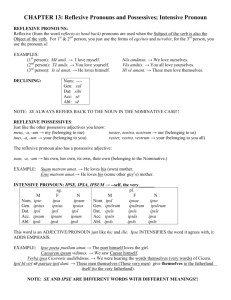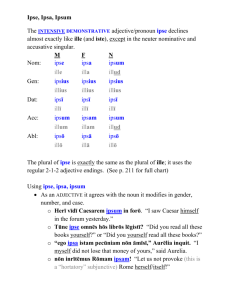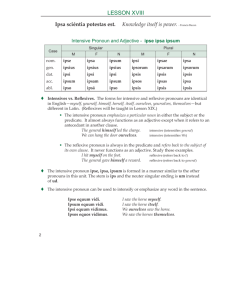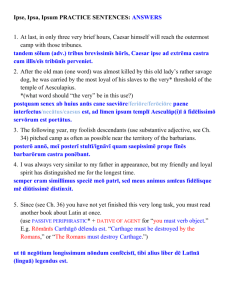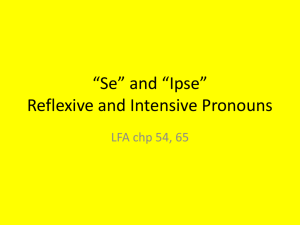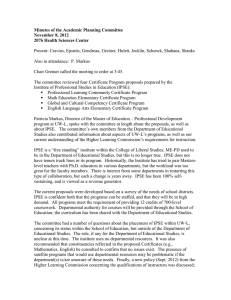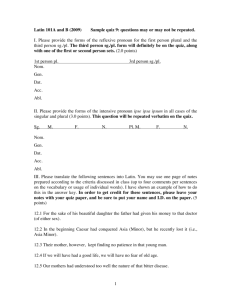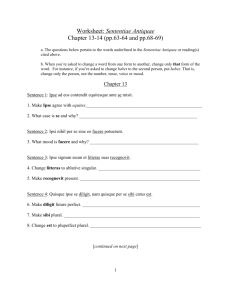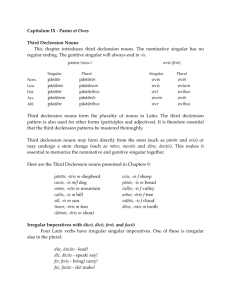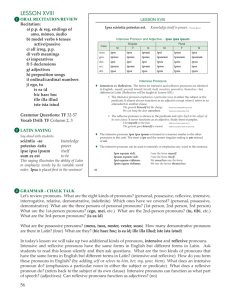15 – Intensive Pronouns
advertisement
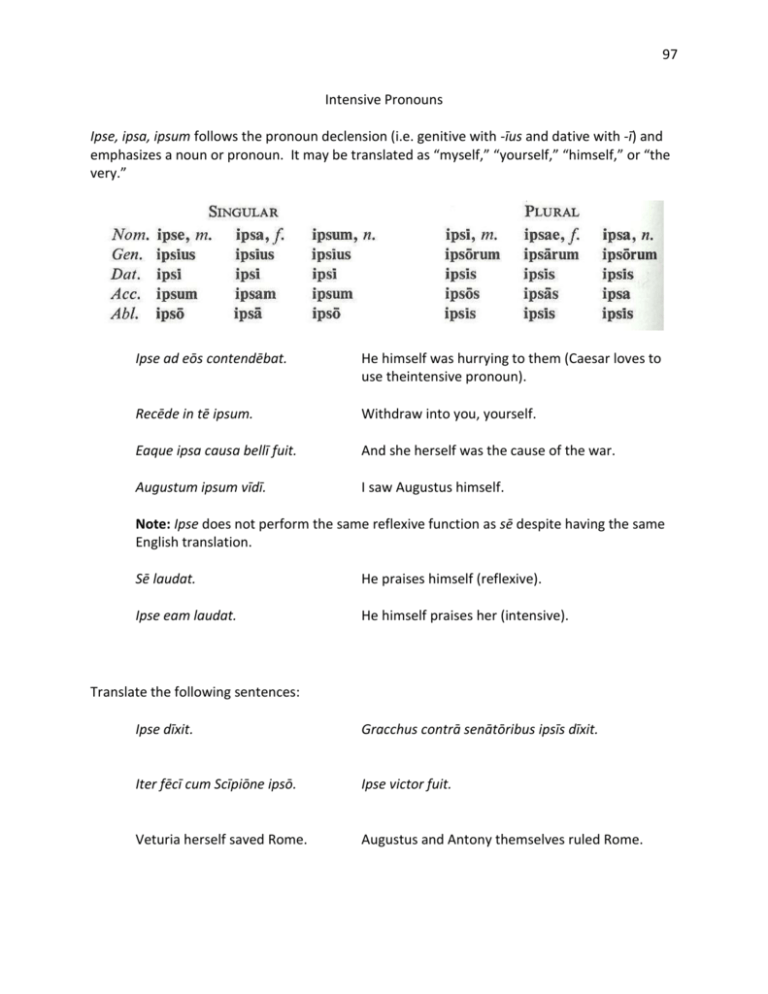
97 Intensive Pronouns Ipse, ipsa, ipsum follows the pronoun declension (i.e. genitive with -īus and dative with -ī) and emphasizes a noun or pronoun. It may be translated as “myself,” “yourself,” “himself,” or “the very.” Ipse ad eōs contendēbat. He himself was hurrying to them (Caesar loves to use theintensive pronoun). Recēde in tē ipsum. Withdraw into you, yourself. Eaque ipsa causa bellī fuit. And she herself was the cause of the war. Augustum ipsum vīdī. I saw Augustus himself. Note: Ipse does not perform the same reflexive function as sē despite having the same English translation. Sē laudat. He praises himself (reflexive). Ipse eam laudat. He himself praises her (intensive). Translate the following sentences: Ipse dīxit. Gracchus contrā senātōribus ipsīs dīxit. Iter fēcī cum Scīpiōne ipsō. Ipse victor fuit. Veturia herself saved Rome. Augustus and Antony themselves ruled Rome.
